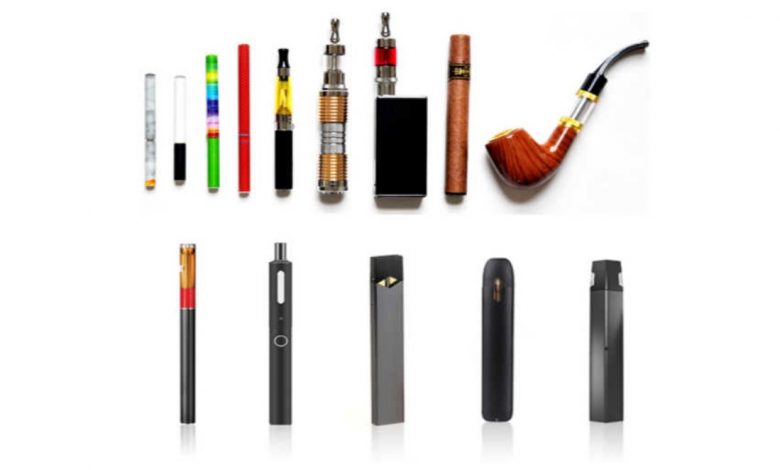Children 13–15-years are smoking e-cigarettes more than adults, says WHO
WHO stresses that E-cigarettes with nicotine are highly addictive and are harmful to health. Whilst long-term health effects are not fully understood, it has been established that they generate toxic substances, some of which are known to cause cancer and some that increase the risk of heart and lung disorders.

In a release from the World Health Organization (WHO) this month, the authority stated that there’s Urgent action needed to control e-cigarettes to protect children, as well as non-smokers and minimize health harms to the population.
According to WHO, e-cigarettes as consumer products are not shown to be effective for quitting tobacco use at the population level. Instead, alarming evidence has emerged on adverse population health effects.
Dr Tedros Adhanom Ghebreyesus the Director General WHO, highlighted that e-cigarettes have been allowed on the open market and aggressively marketed to young people.
He said so far Thirty-four countries banned the sale of e-cigarettes, 88 countries have no minimum age at which e-cigarettes can be bought and 74 countries have no regulations in place for these harmful products.
“Kids are being recruited and trapped at an early age to use e-cigarettes and may get hooked to nicotine,” said Dr Tedros Adhanom Ghebreyesus, WHO Director-General. “I urge countries to implement strict measures to prevent uptake to protect their citizens, especially their children and young people.”
WHO stresses that E-cigarettes with nicotine are highly addictive and are harmful to health. Whilst long-term health effects are not fully understood, it has been established that they generate toxic substances, some of which are known to cause cancer and some that increase the risk of heart and lung disorders.
Dr Ruediger Krech, the WHO Director for Health Promotion, noted that Use of e-cigarettes can also affect brain development and lead to learning disorders for young people.
In this case fetal exposure to e-cigarettes can adversely affect the development of the fetus in pregnant women and exposure to emissions from e-cigarettes also poses risks to bystanders.
“E-cigarettes target children through social media and influencers, with at least 16 000 flavours. Some of these products use cartoon characters and have sleek designs, which appeal to the younger generation. There is an alarming increase in the use of e-cigarettes among children and young people with rates exceeding adult use in many countries,” Dr Ruediger Krech, WHO Director for Health Promotion.
According to the authority Children 13–15-years old are using e-cigarettes at rates higher than adults in all WHO regions. In Canada, the rates of e-cigarette use among 16–19-year-olds has doubled between 2017–2022, and in England (the United Kingdom) the number of young users has tripled in the past three years.
WHO further highlights that even brief exposure to e-cigarette content on social media can be associated with increased intention to use these products, as well as more positive attitudes toward e-cigarettes. Studies consistently show that young people that use e-cigarettes are almost three times more likely to use cigarettes later in life.
The WHO clarified on Urgent measures which are necessary to prevent uptake of e-cigarettes and counter nicotine addiction, alongside a comprehensive approach to tobacco control, and in light of national circumstances which included the following:
- Where countries ban the sale of e-cigarettes, to strengthen implementation of the ban and continue monitoring and surveillance to support public health interventions and ensure strong enforcement.
- Where countries permit commercialization (sale, importation, distribution and manufacture) of e-cigarettes as consumer products, to ensure strong regulations to reduce their appeal and their harm to the population, including banning all flavours, limiting the concentration and quality of nicotine, and taxing them.
In their release the World Health Organization noted that Cessation strategies should be based on the best available evidence of efficacy, to go with other tobacco control measures and subject to monitoring and evaluation.
Based on the current evidence, it is not recommended that governments permit sale of e-cigarettes as consumer products in pursuit of a cessation objective.
It should be noted that the tobacco industry profits from destroying health and is using these newer products to get a seat at the policy-making table, with governments to lobby against health policies, according to WHO.
The Health authorities noted that the tobacco industry funds and promotes false evidence to argue that these products reduce harm, while at the same time heavily promoting these products to children and non-smokers and continuing to sell billions of cigarettes.
Strong decisive action is needed to prevent the uptake of e-cigarettes based on the growing body of evidence of its use by children and adolescents and health harms.







